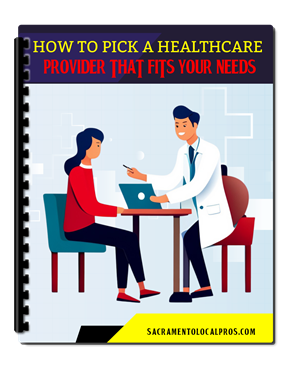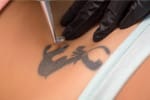Choosing the right rhinoplasty surgeon is one of the most important decisions you can make when considering nose surgery.
Beyond the technical skill required, you’re trusting someone with not only your appearance but also your overall health and well-being.
With so many options available, it can be challenging to discern which surgeons are reputable and which should give you pause.
To help you feel confident in your decision, understanding some key warning signs during your search is essential.
Being informed about potential red flags empowers you to make a choice you can truly feel good about.
Keep reading to discover the 15 critical red flags you should never overlook when selecting a rhinoplasty surgeon.
1)) Lack Of Board Certification
When selecting a rhinoplasty surgeon, it is essential to prioritize their qualifications and expertise to ensure safe and satisfying results.
Board certification serves as a critical indicator of a surgeon's specialized training, rigorous education, and adherence to high professional standards.
By choosing a certified professional, you can gain confidence in their ability to handle the complexities of the procedure and address any unforeseen challenges that may arise.
Certified surgeons are often abreast of the latest advancements in medical techniques and safety protocols, providing a higher level of care.
Thorough research into their credentials, along with reviews and recommendations, can provide further assurance that you are entrusting your care to a highly skilled practitioner.
2)) No Before-And-After Photos
A lack of before-and-after photos can be a significant warning sign when considering a rhinoplasty surgeon.
These photos are not just for showcasing results; they provide tangible evidence of the surgeon's work and their ability to address a variety of patient needs.
Reviewing such images allows you to assess the consistency, finesse, and overall aesthetic outcomes of their procedures.
It demonstrates the surgeon's confidence in their craft and their willingness to be transparent with prospective patients.
Without this valuable reference, it becomes challenging to evaluate whether their skills align with your expectations, making it crucial to ensure that these visuals are readily available during your consultation process.
3)) Limited Rhinoplasty Experience
Choosing a surgeon with substantial experience in rhinoplasty is critical to achieving the desired results.
Surgeons with a deep understanding of nasal anatomy and a proven track record in performing this delicate procedure are better equipped to handle the complexities and nuances involved.
Experience allows a surgeon to refine their techniques and develop an artistic eye for facial symmetry and balance, which are essential qualities in rhinoplasty.
Seasoned surgeons are more likely to anticipate potential challenges during the procedure, ensuring a safer and smoother outcome.
By prioritizing expertise and experience, you greatly enhance your chances of a successful surgery that aligns with your vision.
4)) Poor Online Reviews
Negative feedback or unfavorable reviews from previous patients can serve as a crucial indicator of potential issues with a rhinoplasty surgeon.
When researching, it is important to carefully examine the experiences shared by others, as these can provide valuable insight into the quality of care, professionalism, and outcomes offered by the surgeon.
Consistent complaints about unsatisfactory results, lack of communication, or poor post-operative care should raise concerns and warrant further investigation.
While no surgeon can guarantee perfect reviews due to individual variations in expectations, a pattern of negative feedback should not be overlooked.
Taking the time to analyze such reviews can help you make a more informed decision and avoid possible complications down the line.
5)) No Patient Testimonials
When selecting a rhinoplasty surgeon, it is crucial to assess their reputation and the experiences of their previous patients.
A trusted and skilled surgeon often has a wealth of feedback from individuals they have treated, giving insight into their professionalism, dedication, and the quality of their work.
Patient testimonials can provide valuable information about the surgeon’s ability to meet expectations, their communication skills, and their approach to patient care.
Without these accounts, it becomes difficult to gauge the surgeon's track record or determine if their results align with what you envision.
Therefore, prioritizing a surgeon with visible and positive testimonials can ensure greater confidence in your decision and improve the likelihood of a satisfactory outcome.
6)) Overly Low Pricing
While it may be tempting to choose a rhinoplasty surgeon based on the lowest price, this approach can lead to significant risks and unexpected complications.
Extremely low fees often indicate a lack of experience, use of substandard materials, or shortcuts in safety protocols, all of which can compromise the quality of your results.
Skilled and reputable surgeons invest in advanced training, modern equipment, and top-quality care, all of which come at a price that reflects their commitment to excellence.
It is essential to consider the overall value of the procedure, including the surgeon’s qualifications, past results, facility standards, and patient care, to ensure you receive the best possible outcome.
A decision heavily influenced by cost alone might result in dissatisfaction or the need for costly revision surgeries, ultimately negating any initial savings.
7)) No Detailed Consultation Process
A thorough and transparent initial consultation is essential when selecting the right rhinoplasty surgeon for your needs.
This meeting should provide an opportunity for the surgeon to assess your specific concerns, understand your desired outcomes, and explain the procedure in depth.
It is the perfect time to review their qualifications, experience, and portfolio of past work to ensure their expertise aligns with your expectations.
Furthermore, the surgeon should outline potential risks, recovery timelines, and the realistic results you can anticipate.
Engaging in an open and comprehensive consultation helps establish trust and ensures you feel confident and informed as you move forward with your decision.
8)) Unclear Or Rushed Communication
Clear and thorough communication is one of the most important factors to consider when selecting a rhinoplasty surgeon.
A highly qualified professional will take the time to explain every aspect of the procedure, from preparation to recovery, in a way that is easy to understand.
They will encourage you to ask questions and address any concerns you have without rushing through explanations or making you feel unimportant.
This level of attentiveness not only demonstrates their expertise but also reflects their dedication to patient care and satisfaction.
Carefully assessing the communication style of a surgeon can help ensure a positive experience and the best possible outcome for your procedure.
9)) Lack Of Hospital Privileges
When selecting a rhinoplasty surgeon, it is crucial to ensure that they have the necessary hospital privileges.
These privileges indicate that a hospital has thoroughly reviewed and verified the surgeon’s credentials, skills, and experience.
A surgeon who lacks such privileges may not have undergone this level of scrutiny, raising concerns about their qualifications or practice standards.
Hospitals conduct rigorous assessments before granting privileges, so this serves as a safeguard for patients.
Having hospital privileges provides an added layer of safety as it ensures that the surgeon can perform procedures in a well-equipped and regulated medical environment if needed.
Taking the time to verify this aspect can significantly contribute to peace of mind and a successful surgical experience.
10)) No Follow-Up Care Plan
Ensuring that comprehensive aftercare is part of the surgical process is essential when selecting a rhinoplasty surgeon.
Proper follow-up care can significantly impact both the recovery process and the final results of the procedure.
It allows the surgeon to monitor healing, address any concerns promptly, and make necessary adjustments if needed.
Patients benefit from regular check-ins as these appointments provide an opportunity to discuss progress and ensure that there are no complications.
Surgeons who prioritize a thorough postoperative care strategy demonstrate their commitment to patient well-being and the quality of their work.
This level of attentiveness reflects a dedication to achieving the best possible outcome while fostering trust and confidence in the patient-surgeon relationship.
11)) Generalist, Not A Specialist
When considering a rhinoplasty surgeon, it is essential to ensure that the professional you choose has extensive experience and a proven track record in this specific area of cosmetic surgery.
Specialized surgeons possess not only the technical skill but also a deep understanding of the intricate anatomical structures of the nose, which are critical for achieving both aesthetic and functional results.
A surgeon with a focused specialty is more likely to stay updated with the latest advancements, techniques, and tools required for success in rhinoplasty procedures.
Trusting an expert who has dedicated their career to refining their craft can provide a higher level of confidence in achieving the desired outcome, as they are better equipped to address the unique and delicate requirements of nasal surgery.
12)) High-Pressure Sales Tactics
When considering a rhinoplasty surgeon, it is essential to be mindful of the approach they take during consultations.
Surgeons who prioritize building trust and providing thorough, transparent information about the procedure, potential risks, and realistic outcomes demonstrate professionalism and a patient-centered focus.
On the other hand, those who use high-pressure sales tactics, such as offering limited-time deals or pushing for immediate decisions, may not have the patient’s best interests in mind.
A skilled and ethical surgeon will encourage you to take the time needed to feel fully informed and confident before moving forward.
This thoughtful approach reflects a commitment to quality care and ensures that patients can make decisions based on their genuine readiness rather than external pressures.
13)) Unclean Or Outdated Facility
A clean and modern facility is essential when choosing a rhinoplasty surgeon, as it reflects their dedication to maintaining high standards of hygiene and patient care.
An unkempt or outdated environment may not only indicate a lack of professionalism but could also pose significant risks to your health and safety.
Advanced medical practices require up-to-date equipment and properly sterilized tools to ensure optimal results and prevent complications such as infections.
Visiting the facility beforehand allows you to observe its cleanliness, organization, and overall atmosphere, which can help in assessing whether it aligns with your expectations for a safe and professional experience.
Prioritizing your well-being begins with selecting a surgeon who operates in an environment designed to uphold the best practices of modern medicine.
14)) Bad Reputation Among Peers
A surgeon's reputation within their professional community can serve as a critical indicator of their skill, ethics, and quality of care.
When evaluating a rhinoplasty surgeon, it is important to research their standing among colleagues and industry professionals.
A negative reputation may signal issues such as subpar results, unethical practices, or a lack of adherence to established medical standards.
Testimonials from other healthcare professionals, as well as participation in respected medical associations, can help paint a clearer picture of their credibility.
By considering these factors as part of your decision-making process, you can ensure you are entrusting your care to a highly regarded and trustworthy expert in the field.
15)) No Mention Of Complications Management
When selecting a rhinoplasty surgeon, it is essential to evaluate their level of transparency and their approach to patient care.
A reputable professional should not only showcase their skills through a portfolio of successful cases but also provide a detailed explanation of the surgical process, addressing any potential challenges that may arise.
Open communication fosters trust, allowing patients to feel more confident in their choice.
Surgeons who emphasize patient safety as a top priority and follow well-established medical protocols demonstrate a commitment to high standards of care.
By carefully assessing these aspects, patients can make an informed decision and feel assured about the expertise of their chosen surgeon.
Conclusion
Choosing the right surgeon is a crucial step in ensuring a positive outcome and a safe, satisfying experience.
By thoroughly researching credentials, verifying board certifications, and evaluating a surgeon’s experience, patients can gain confidence in their decision.
Communication also plays a pivotal role—clear, honest, and empathetic dialogue fosters trust and helps patients feel heard and supported throughout their medical journey.
Furthermore, prioritizing surgeons who adhere to strict safety protocols and uphold industry standards underscores the importance of diligent care.
Taking the time to carefully assess these factors empowers patients to make informed choices, paving the way for successful procedures and peace of mind.
Investing effort into this decision reflects the value of one’s health and well-being, making it an essential process for anyone seeking surgical care.
Download Our Free E-book!








